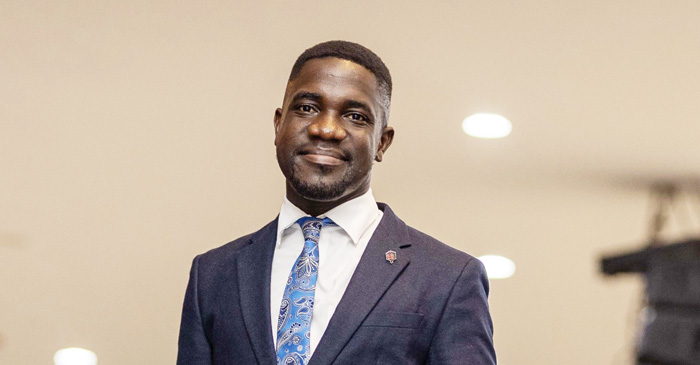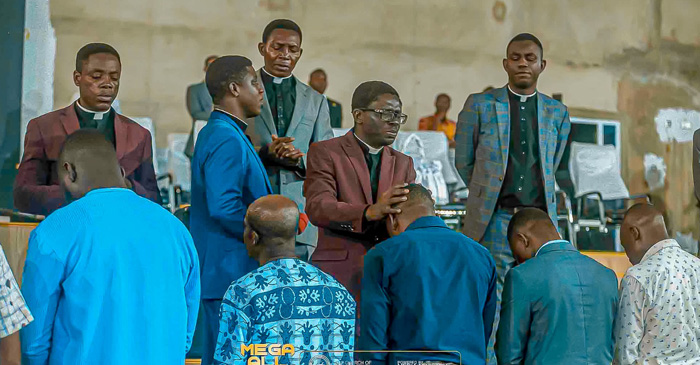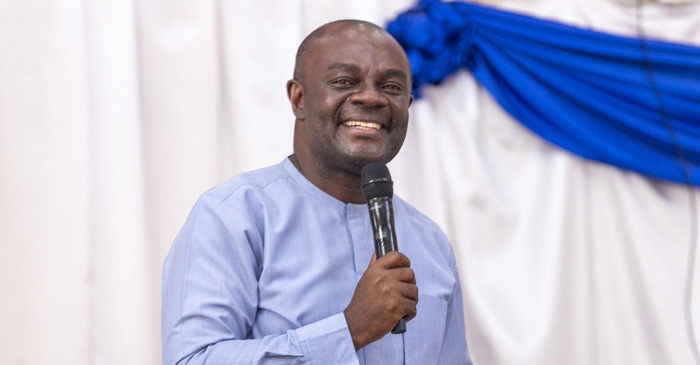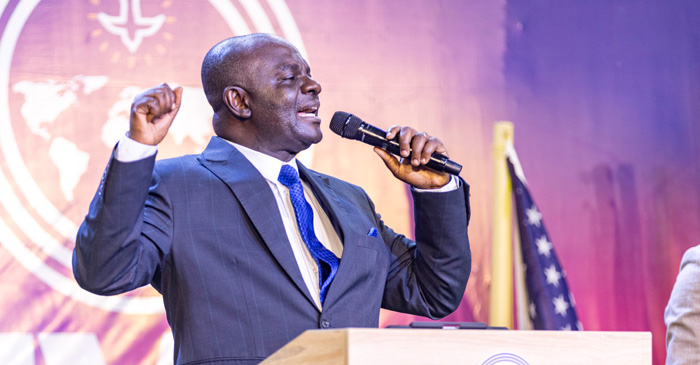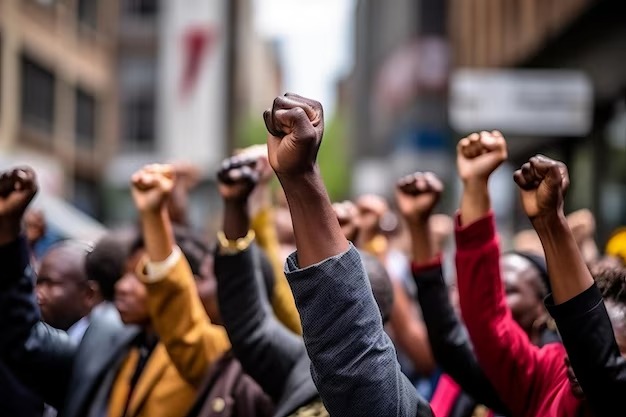
Democracy, at its core, is power vested in the people—a government by the people and for the people. But in Ghana, does governance truly reflect this principle? My recent visit to Germany for a conference exposed a stark difference in how local governance functions. In Oberhausen, a relatively small and “remote” city, systems worked seamlessly. Roads were in good condition, sanitation was well-managed, and community development was not dependent on politicians’ benevolence. Governance was not just a distant concept but an everyday practice.
Back home in Ghana, however, local governance appears weak, with citizens having little or no real influence over the spaces they inhabit. A critical problem lies in the widespread ignorance surrounding the roles of Members of Parliament (MPs) and Metropolitan, Municipal, and District Chief Executives (MMDCEs). The average Ghanaian mistakenly views MPs as the primary drivers of local development when, in reality, MMDCEs are the key actors in community governance.
Who Should Be Responsible for Local Development?
As the United Nations Development Programme (UNDP) (2021) puts it, “Local governance is the foundation upon which national development is built.” In an ideal system, MMDCEs, who are directly responsible for local governance, should be at the forefront of infrastructural and social development. They receive funding through the District Assemblies Common Fund (DACF) and internally generated revenue, giving them the financial means to execute projects within their jurisdictions. Yet, public attention remains fixated on MPs, who are often seen as the providers of development. This misplaced expectation creates a dysfunctional governance structure where MPs, whose primary role is legislation, are burdened with executing projects instead of focusing on policymaking.
Perhaps a major reason for this confusion is the way political appointments are structured. Unlike MPs, who are elected by popular vote, MMDCEs are appointed by the President, leaving them more accountable to the central government than to the people they serve. The Ghana Local Governance Act, 2016 (Act 936) outlines the responsibilities of MMDCEs, stating clearly that they are to oversee development projects in their districts. Yet, without direct elections, there is little public interest in their work, making them less accountable.
One major consequence of MPs being elected through popular vote is the pressure to promise and deliver development projects to win and retain political support. Instead of focusing on legislative duties—such as organising town hall meetings to gather constituents’ views and better represent them in Parliament—MPs often pledge to construct roads, football parks, markets, and other infrastructure, responsibilities that constitutionally fall under the purview of MMDCEs. These development-based promises become the benchmark by which MPs are judged during elections.
For instance, on March 31, the Parliament of Ghana approved GHS 250,000 for MPs through the Ghana Education Trust Fund (GETFund) to support educational infrastructure in their constituencies. Additionally, each MP was allocated GHS 150,000 for project monitoring. While this initiative may contribute to education sector improvements, it further entrenches the perception of MPs as development agents. This trend deviates from the intentions of Chapter 20 of the 1992 Constitution, which clearly assigns developmental responsibilities at the local level to MMDCEs. Ideally, such funds should have been channeled to the MMDCEs, who are constitutionally mandated to champion local development.
Notably, the Minority Chief Whip, Hon. Frank Annoh Dompreh, even advocated for an increase in these funds on the floor of Parliament, citing the immense pressure MPs face from constituents to provide development. While this reality is understandable, it undermines the governance framework and distorts role accountability.
Some argue that the ineffectiveness of many MMDCEs has led to this shift in expectations, with citizens looking to MPs for solutions. This makes recent statements by the newly appointed Minister for Local Government, Hon. Issah Ahmed, quite promising. He has declared zero tolerance for non-performing MMDCEs. Whether these bold words will translate into action remains to be seen.
The Role of Citizens in Governance
Governance expert and former Country Director for SEND-Ghana, Dr. George Osei-Bimpeh rightly asserts that “Decentralisation without citizen engagement is merely shifting inefficiency from the centre to the periphery.” One of the most concerning issues is that citizens do not actively participate in local governance. Many Ghanaians wait for the government to handle even basic communal tasks, such as sanitation and drainage maintenance. In contrast, in countries with strong local governance systems, citizens take pride in their communities and play an active role in their upkeep.
This culture of passivity extends to elections, where voter engagement is often limited to national politics. Local governance elections, which directly impact citizens’ daily lives, receive far less attention. As a result, people do not hold MMDCEs accountable for development, allowing inefficiency and corruption to thrive. Former U.S. President John F. Kennedy’s famous words, “Ask not what your country can do for you—ask what you can do for your country,” perfectly capture the attitude shift needed in Ghana. Citizens must see themselves as active participants in governance, not just passive recipients of government action.
A 2022 World Bank Report on Decentralisation and Governance emphasises that “countries with effective decentralisation frameworks experience stronger economic growth and community-driven development.” This means that when local governance structures function well and citizens actively participate, national development is accelerated.
The Media’s Role in Strengthening Local Governance
The media must take responsibility for shaping public perception and awareness of governance structures. Unfortunately, in Ghana, media discussions are dominated by national politics, with little focus on local governance. Radio and television stations dedicate extensive coverage to MPs, presidential policies, and ministerial appointments while ignoring the performance of MMDCEs. This imbalance perpetuates the misunderstanding of governance roles and weakens accountability at the grassroots level.
The Agenda-Setting Theory by McCombs & Shaw (1972) explains how media influence public perception by determining which issues receive attention. In Ghana, the overwhelming media focus on MPs instead of MMDCEs has contributed to the distorted public understanding of governance. Thomas Patterson, in his book “Informing the News: The Need for Knowledge-Based Journalism,” argues that “The media’s role in governance is not just to inform but to empower citizens with knowledge.” It is, therefore, crucial for Ghanaian journalists to shift the focus toward local governance, exposing the failures of MMDCEs and tracking their performance.
Investigative journalism should highlight the inefficiencies at the local government level, just as it does for national leaders. If the media can scrutinise the work of MMDCEs as much as they do for MPs and Ministers, it will create pressure for better governance.
Rethinking Governance
If Ghana is to experience tangible development, there must be a fundamental shift in how governance is understood and practiced. Holding the President accountable is essential, but it is equally critical to scrutinise the performance of MMDCEs. They manage our cities, towns, and districts—our everyday environments. Their effectiveness, or lack thereof, determines the quality of our roads, schools, healthcare facilities, and sanitation systems. In essence, let MPs be MPs, and MMDCEs be MMDCEs.
Ghanaians must also recognise their role in governance by moving beyond passive expectation to active participation. Communities should demand transparency from their local leaders, engage in local decision-making processes, and insist on better service delivery.
Most importantly, we must reform the way MMDCEs are selected. A democratic election process, rather than presidential appointments, would ensure that local leaders are accountable to the people they serve. Until then, local governance will remain weak, and national development will continue to suffer.
Former British Prime Minister Winston Churchill once said, “The best argument against democracy is a five-minute conversation with the average voter.” This quote, though cynical, highlights an important truth: democracy only works when the electorate is well-informed. If we want real change in Ghana, we must start by educating the public on governance structures and demanding accountability at all levels.
Written by Prince Kojo Asare (Head of News, Pent Media Centre)



